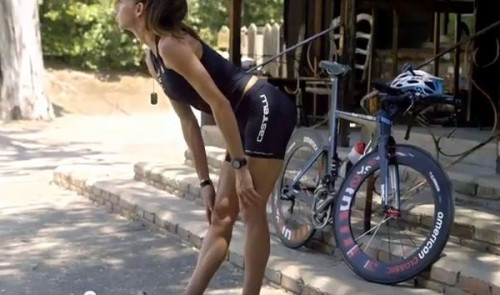Earlier this month, Lisa posted about the objectification of female beach volleyball players at the Olympics, discussing the types of photos and poses that are used when reporting on different types of sports, including gendered differences.
Autumn B. sent in another over-the-top example of the objectification of female athletes. The commercial is for RoadID, a company that sells “identification gear.” Autumn saw it while watching the Tour de France; she found this shortened version online, which she says actually features less objectification than the original did.
The main focus of the ad is a slow investigation of various aspects of cyclist Jenny Fletcher’s body. The camera travels slowly up her leg, then shows her full profile before zooming in on her breasts as she zips up her shirt:
Jenny Fletcher has no dialogue. She exists as a body to be broken down into eroticized parts for the consumption of the viewer. As Autumn put it, it’s frustrating that, a fan of the “the male-centric Tour de France,” that “when they do FINALLY feature a female cyclist, it is as a sexual object.”
For other posts on this topic, see Serena Williams’ patriarchal bargain, Sports Illustrated covers, feminizing female athletes, Serena Williams in ESPN magazine, and media portrayals of female athletes.


